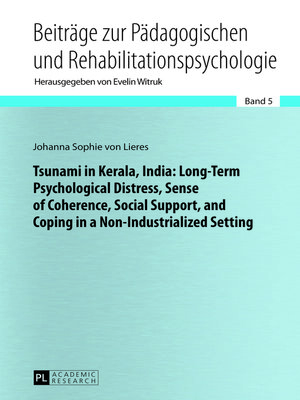Tsunami in Kerala, India
ebook ∣ Long-Term Psychological Distress, Sense of Coherence, Social Support, and Coping in a Non-Industrialized Setting · Beiträge Zur Pädagogischen Und Rehabilitationspsychologie. Studies In Educational and Rehabilitation Psychology
By Evelin Witruk

Sign up to save your library
With an OverDrive account, you can save your favorite libraries for at-a-glance information about availability. Find out more about OverDrive accounts.
Find this title in Libby, the library reading app by OverDrive.



Search for a digital library with this title
Title found at these libraries:
| Library Name | Distance |
|---|---|
| Loading... |
This study assesses the long-term psychological consequences after the 2004 Asian tsunami in Kerala, India. Participants are the inhabitants of Kerala's coastal regions. The results indicated that the participants who were affected by the tsunami showed significantly greater psychological distress and symptoms of post-traumatic stress disorder (PTSD) than a control group. In addition, it could be shown that protective factors, such as perceived social support, certain coping strategies, and a sense of coherence, could decrease the level of symptoms. Perceived social support, in particular, decreased symptoms of post-traumatic stress disorder and a strong sense of coherence mitigated psychological distress. Avoidance coping was found to be more effective in decreasing levels of traumatic stress in this non-industrialized, collectivistic cultural setting.







